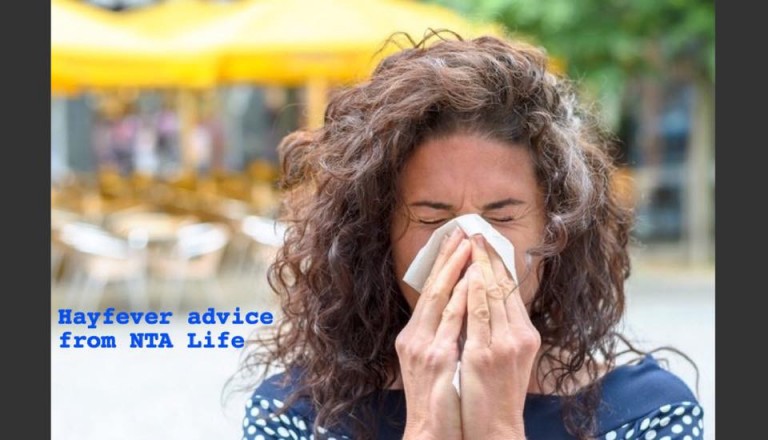Hay Fever
Hay fever is a type of rhinitis that is an allergic reaction to pollen and other airborne irritants such as fungal spores like mold, animal dander and house dust mites. Rhinitis just means inflammation of the nose – it happens when more mucus is produced inside the nose to catch particles that come in when we breathe.
Allergic rhinitis (Hay fever) is when those particles being caught by the mucus layer cause a release of histamine. Most people who suffer from hay fever are allergic to grass pollen (happens in late summer) and many are allergic to tree pollen (in the spring). Flower pollens are highest in the summer but they are heavier and carried by bees, rather than by the wind so they are less of a problem.
Hay fever is the most common allergy in the UK with about 15-20% of us in the UK being affected. Hay fever is more common in people between 15-25.
Hay fever symptoms are a result of our immune system over-reacting to elements such as pollen and they can be unbearable!
Common symptoms include sneezing, a runny nose, a stuffed up nose, itchy and watery or streaming eyes, nasal congestion and a general stuffed up feeling in the nose and throat.
Other symptoms of Hay fever can include itching around the face and mouth including an itchy mouth, itchy roof of mouth and a burning sensation in the throat. Headaches and wheezing can also occur.
Other symptoms can include a build up of pressure in the entire face area, especially the sinus area. Constant nose rubbing and blowing can also leave sufferers with skin irritation and sensitivity. All of this can lead to sleep disturbance and difficulty getting to sleep, leaving you feeling low and sluggish.
About 1% of people have histamine intolerance when a build up of histamine causes other symptoms. There is an article about it on our Blog if you think you might be affected.
Nature’s Wisdom have a Hay Fever support bundle available for just £22 – order one today and start feeling the benefit of reduced symptoms within the first 24 hours!
Top tips to reduce Hay fever symptoms:
·∙ Homeopathic pollen and dust allergy support remedy is really effective and causes no side effects – you can buy it through the Natures Wisdom website, just order “one pot” on the Homeopathy page.
·∙ Haymax Barrier Balm stops pollen particles from entering the nose in the first place! Again you can buy it online, in Health foods shops and some supermarkets.
·∙ Close windows and take more precautions outside for 1-2 hours after sunrise and before sunset as this is when more pollen is in the air at our head height, (it goes higher in the atmosphere during the day).
·∙ Eat local honey, starting 2 months before your Hay fever symptoms usually start – to reduce the trigger effect of pollens
·∙ Eye drops that include Eyebright are very soothing, or you can dilute Eyebright tincture and make your own ·∙ Drinking Thyme or Nettle tea reduces inflammation in the nose and sinuses
·∙ Use an air filter indoors – www.healthy-house.co.uk is a good source of advice about products
·∙ Tie your hair up and wear a hat when outside to prevent pollen particles being caught in your hair.
·∙ Shower at night before sleeping to remove pollen particles and pet hair from your hair and body.
·∙ Wear wrap around sunglasses when outdoors to prevent pollen particles coming in contact with your eyes.
·∙ Dry clothes indoors rather than on a clothes line to prevent pollen particles being blown onto the clothes
·∙ Vacuum the house regularly especially beds and fabrics to remove pollen particles.
Hay fever is connected to other health problems and it is thought that bowel flora problems, toxins like mercury and other heavy metals as well as hormone imbalances like oestrogen dominance as factors that can cause or worsen Hay fever. As a result, your Hay fever symptoms will be reduced if you improve you overall health. NTA services can help you to resolve these issues with a Health MOT.
Copyright Sonia O’Donnell for NTA 2020


Recent Comments